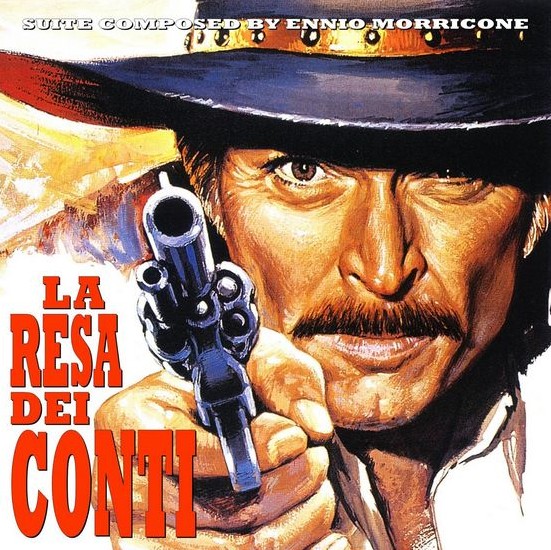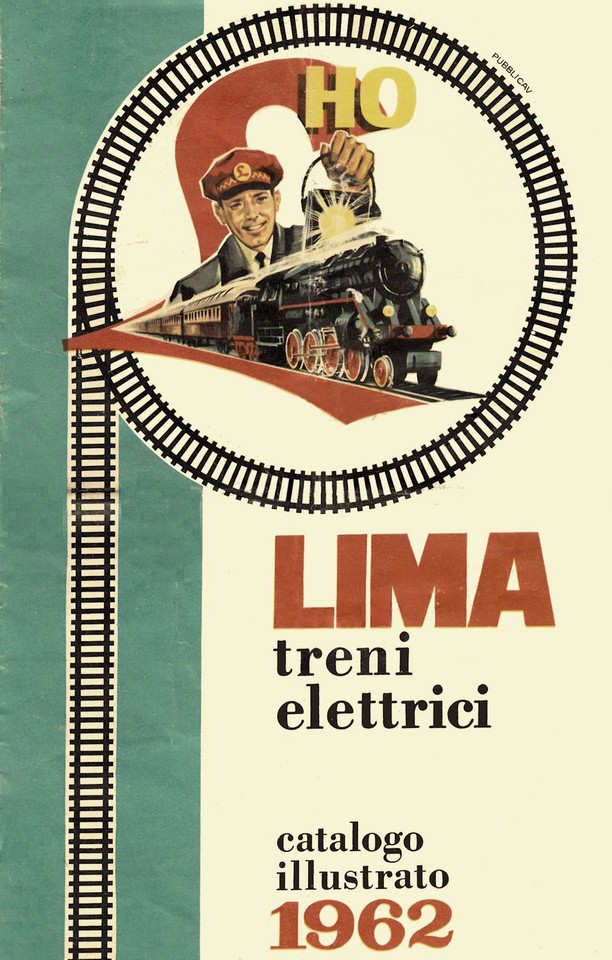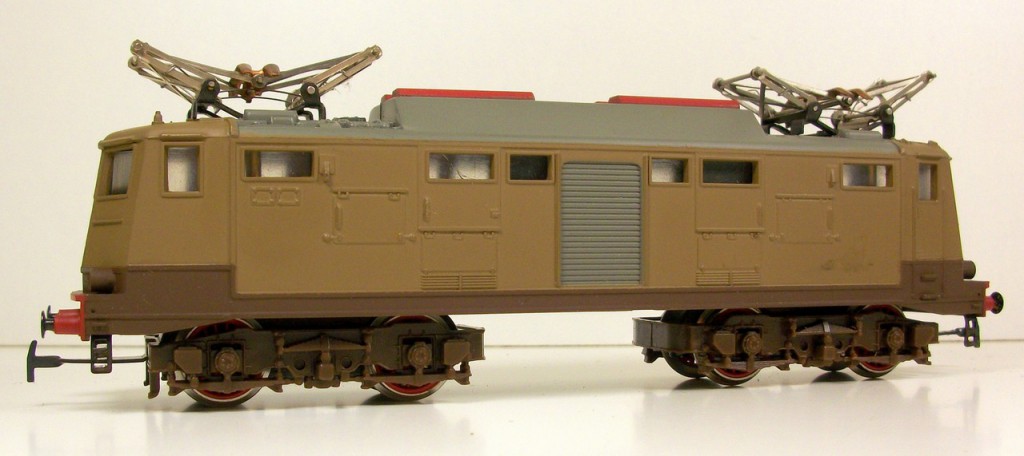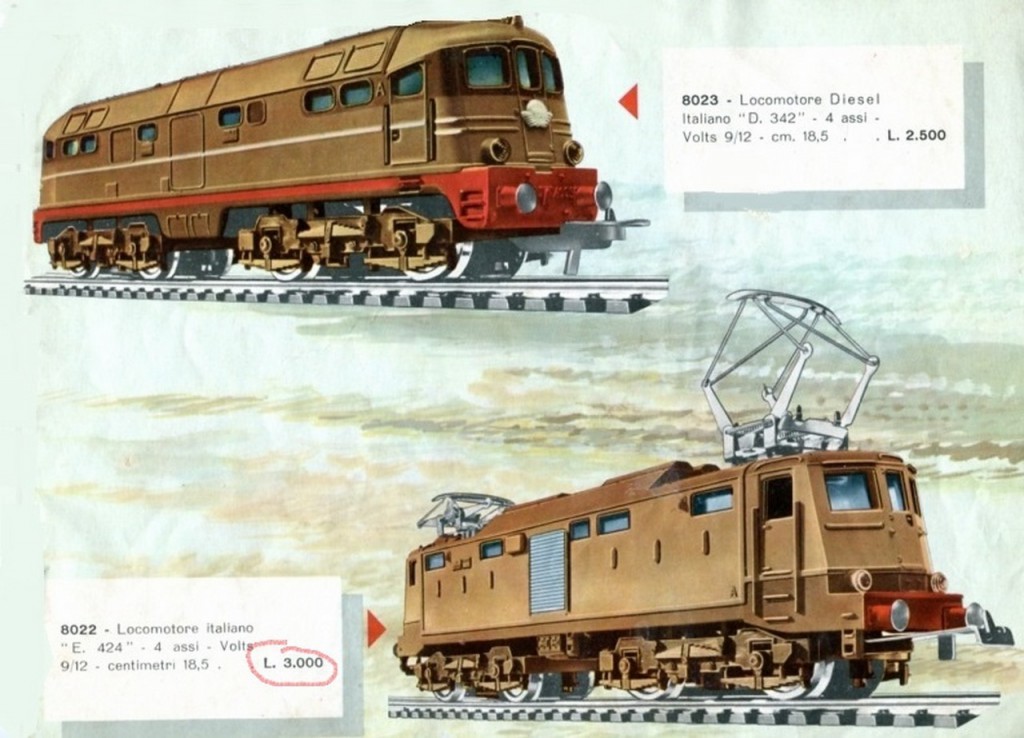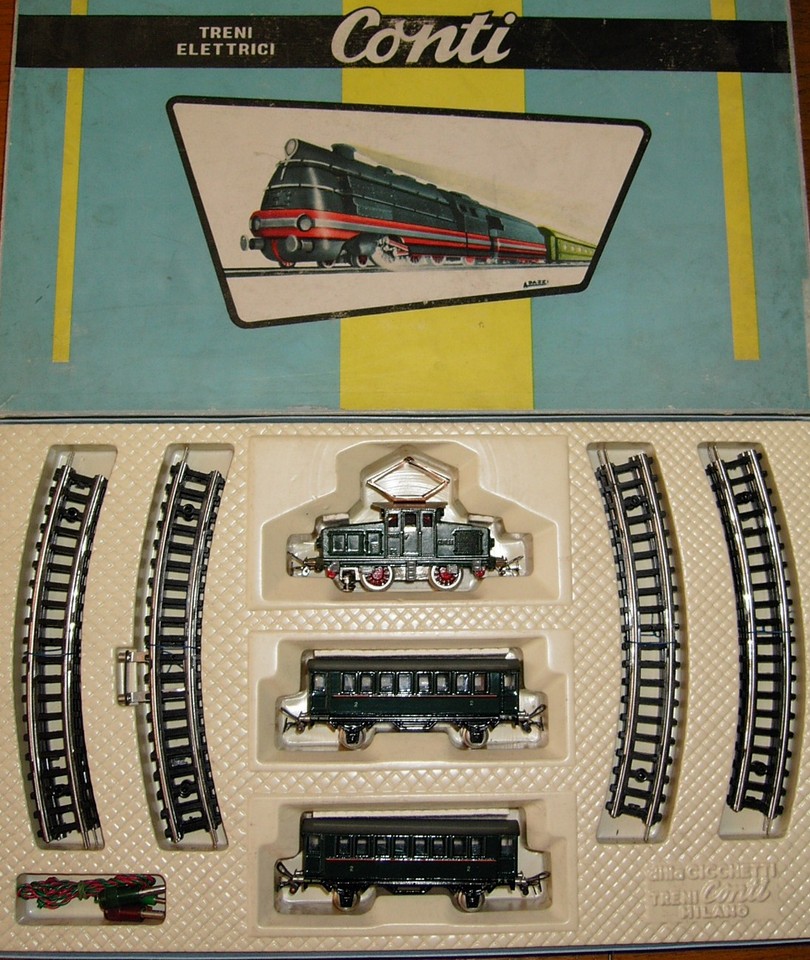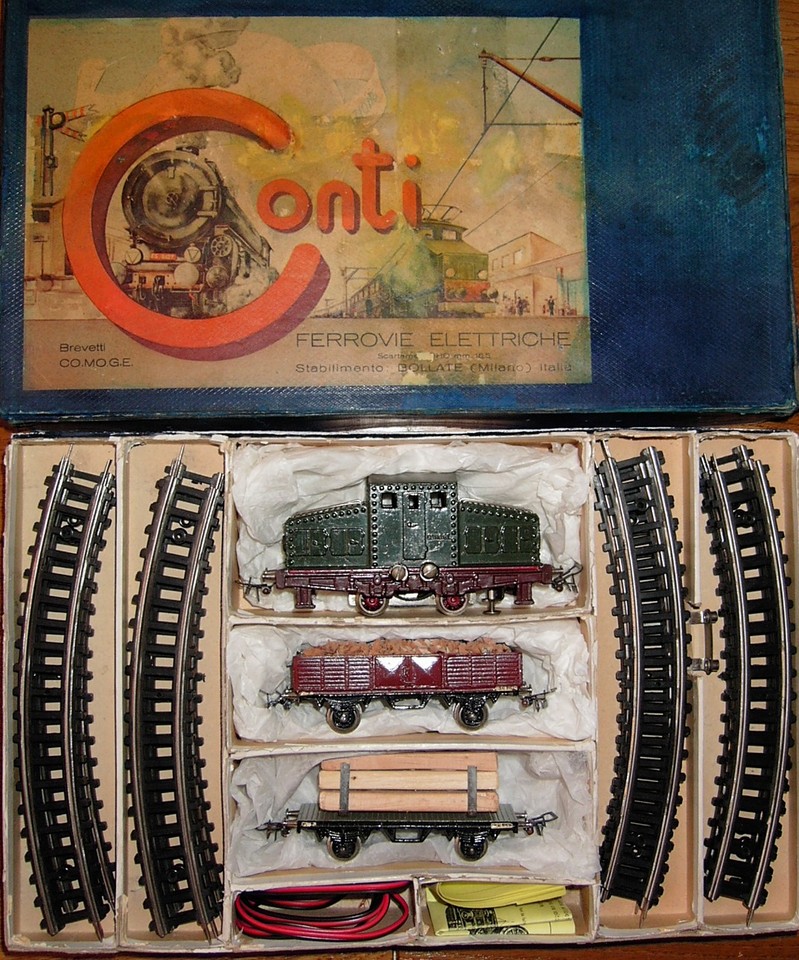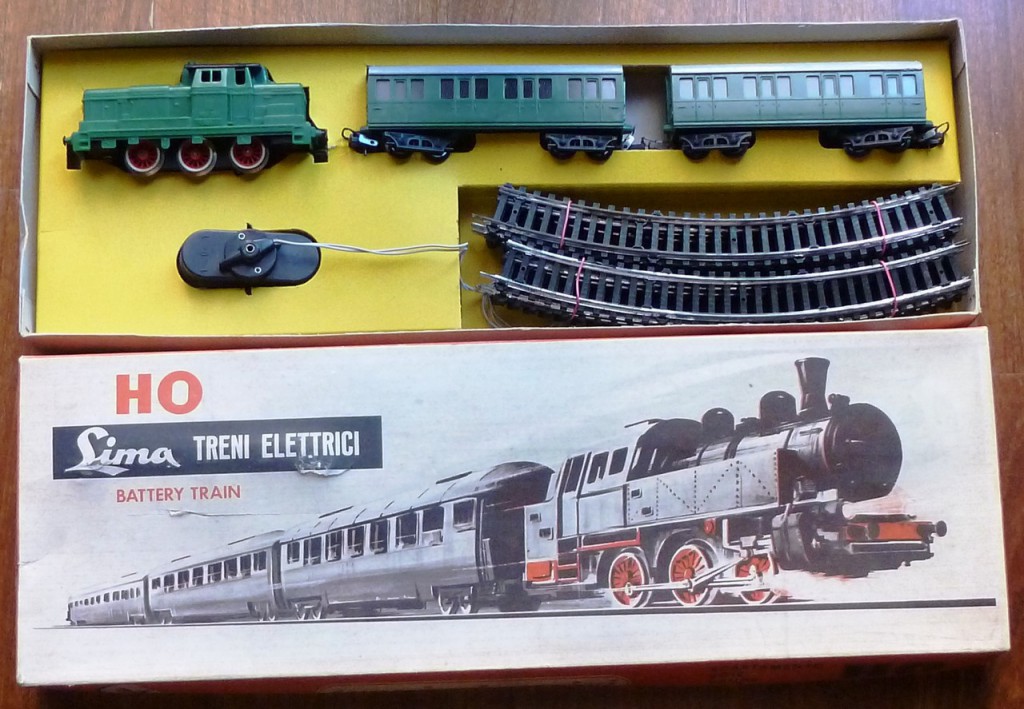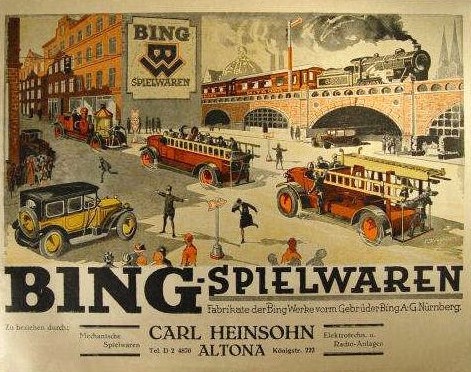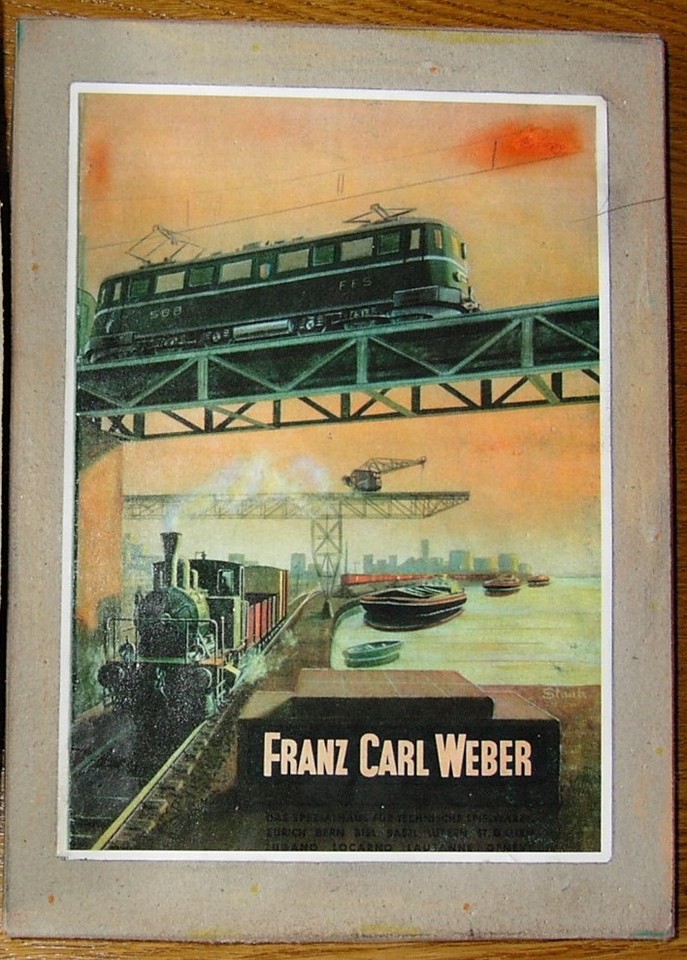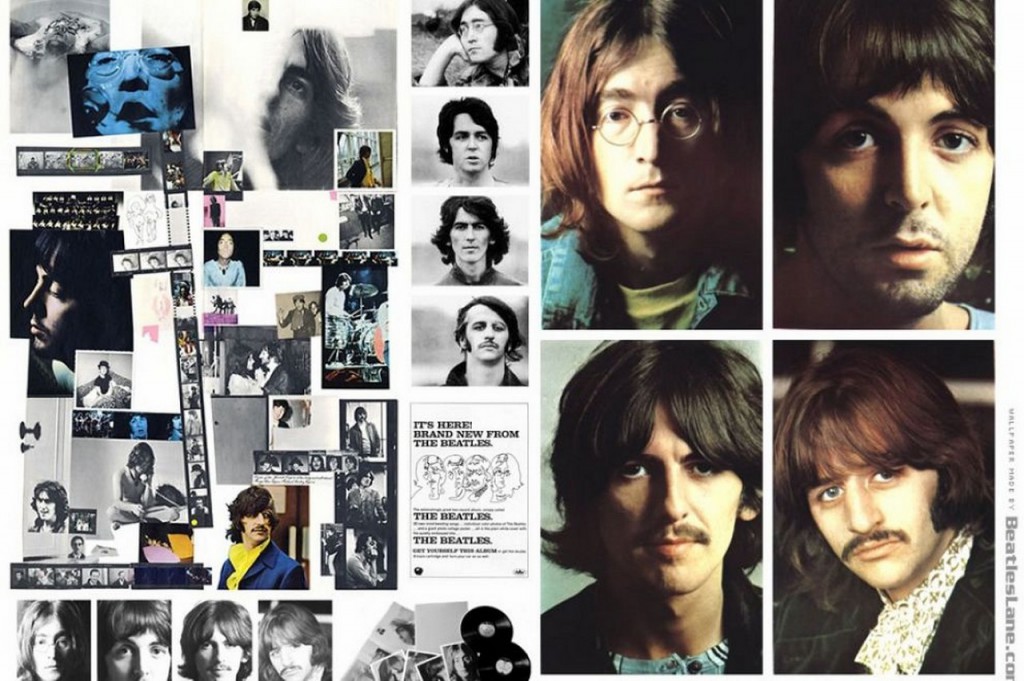“The Showdown”: the packages Conti-Bub
Written by P.G.
In the early 60’s production Conti was in the hands of Orestes Cicchetti ….
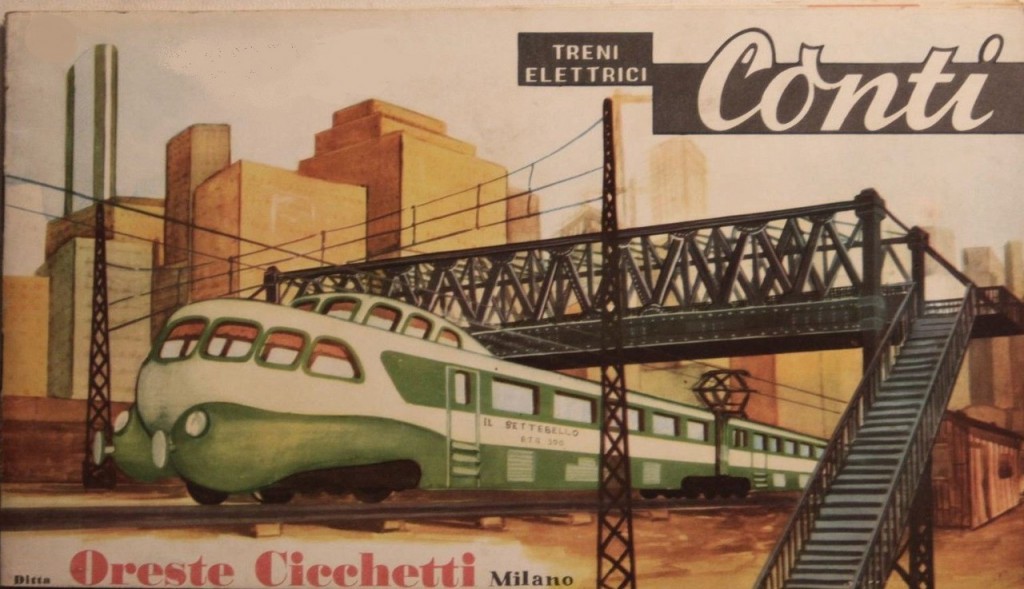
… and it is faced with what could be called the “phenomenon LIMA”
with its trains “low-cost” , plastic products in large quantities at very low cost and, if they can not compete with the quality of manufacture of Conti, however, they are placed on the same market segment, the railway miniature made for play.
Rivarossi tries to defend itself by the assault of Vicenza little trains with the “Series RR” ….
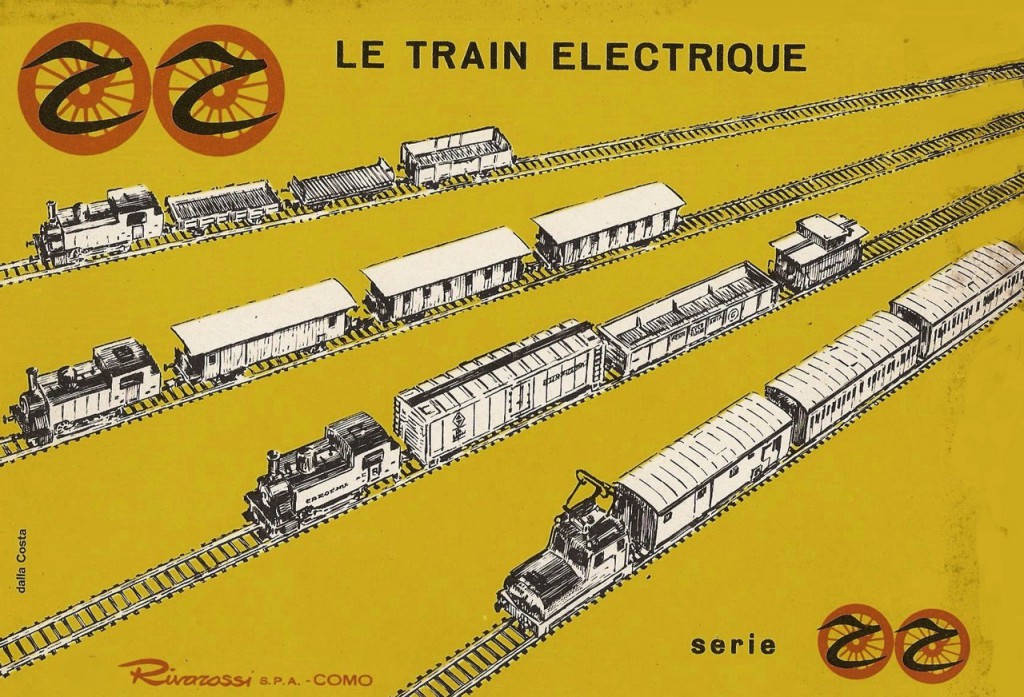
… However the battle is very hard and not without tactical mistakes … ..

The house of Como, for example, simplifies thoroughly her 424 to reduce the sale price from £ 8,400 to £ 3,000 … ..
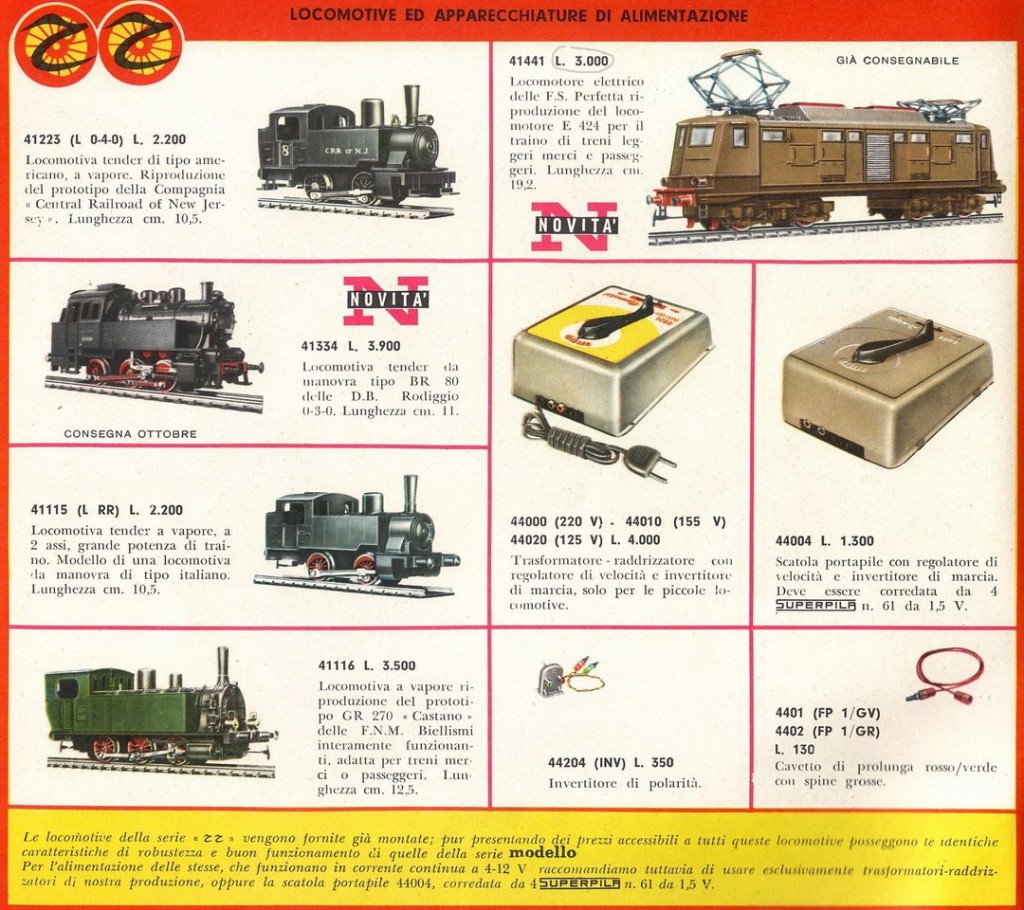
… Getting the result of offering the market a locomotive very worst of previous versions, missing many details even essential, completely out of scale, poor traction force and spilling through the corners for being deprived of ballast ….
at the same price catalog of LIMA …
much more comprehensive and detailed, built to scale closer to HO and operation much more reliable ….
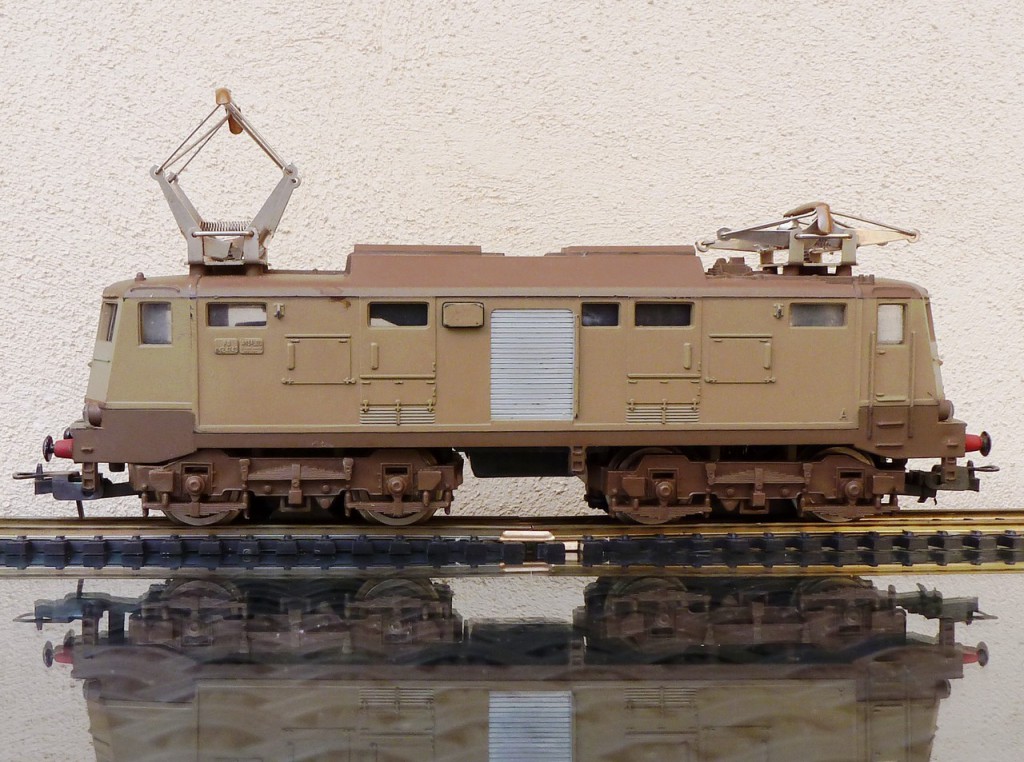
… And it is even worse for the 424 Conti, full of charm in our eyes of collectors today ….
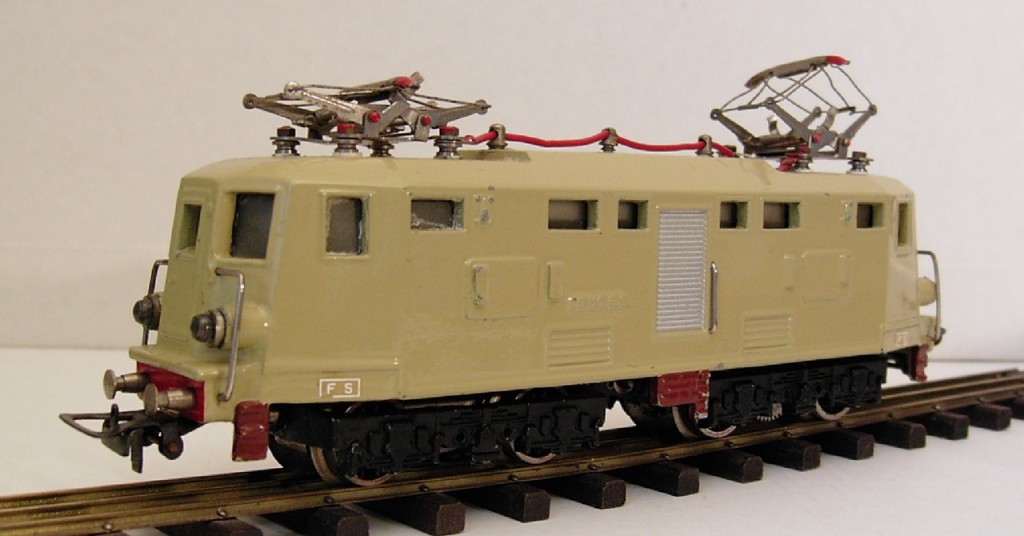
… but that, in the context of those years, is commercially loser from all points of view in front of the LIMA model.
(I wonder why Conti has produced its 424 sand-colored or even green and never in the actual FS colors ?)
Even the sale of packs
Conti enters a deep crisis:
how can these packs ….
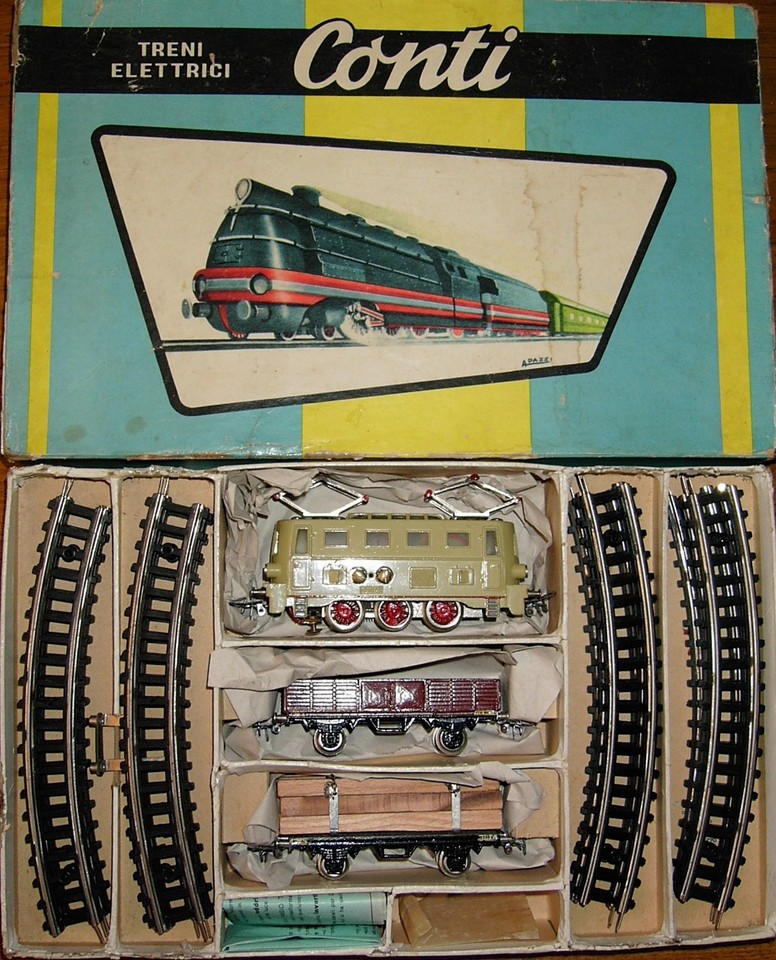
… .compet with
those of … LIMA.
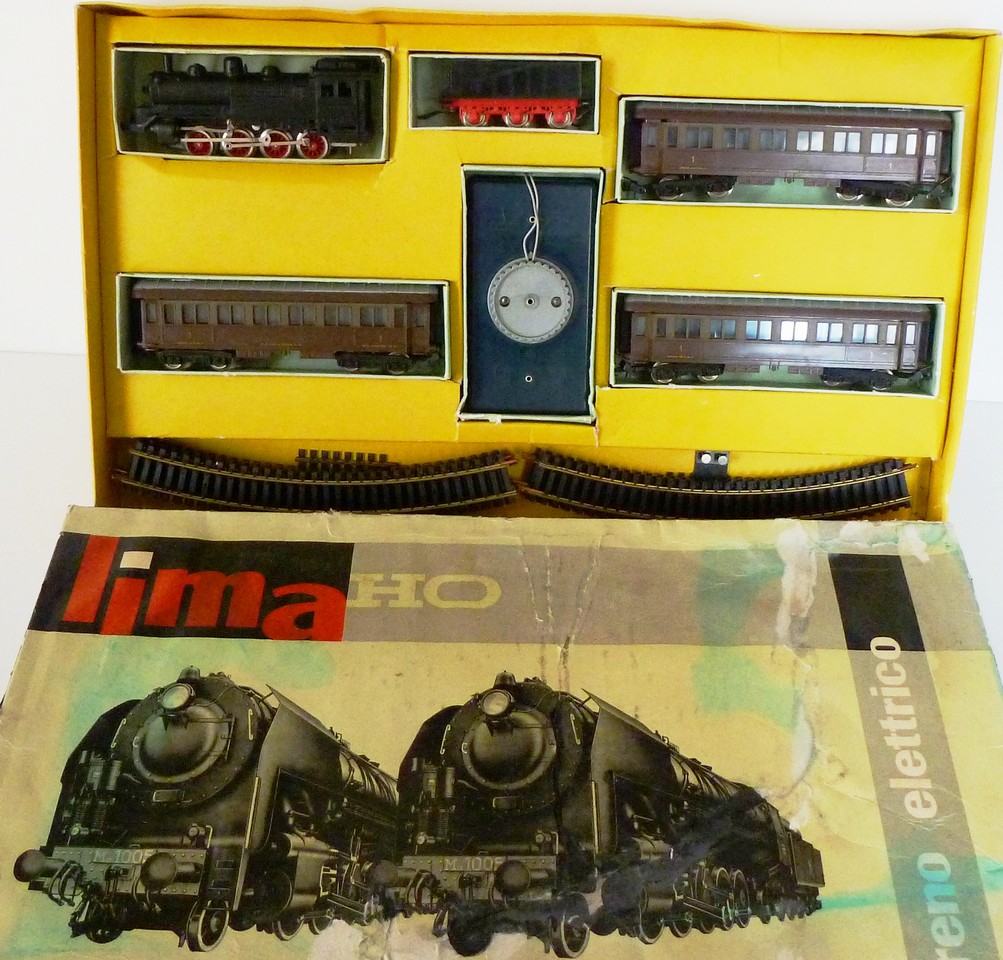
… .. That cost less than a third and presenting themselves to the public as much more realistic and correct scale?
As we mentioned in the articles of this brand, in those years the Vicenza trains cross the Brenner and also invade the countries beyond the Alps.
One of the German manufacturers particularly affected by this phenomenon is Karl Bub …

…. which bears the name of its founder, who started the activities in Nuremberg in 1851 and which, in the future, we will devote a separate article.
Bub, after detecting the activities of Bing,
had been, between the two world wars, one of the pioneers of the scale 00 …
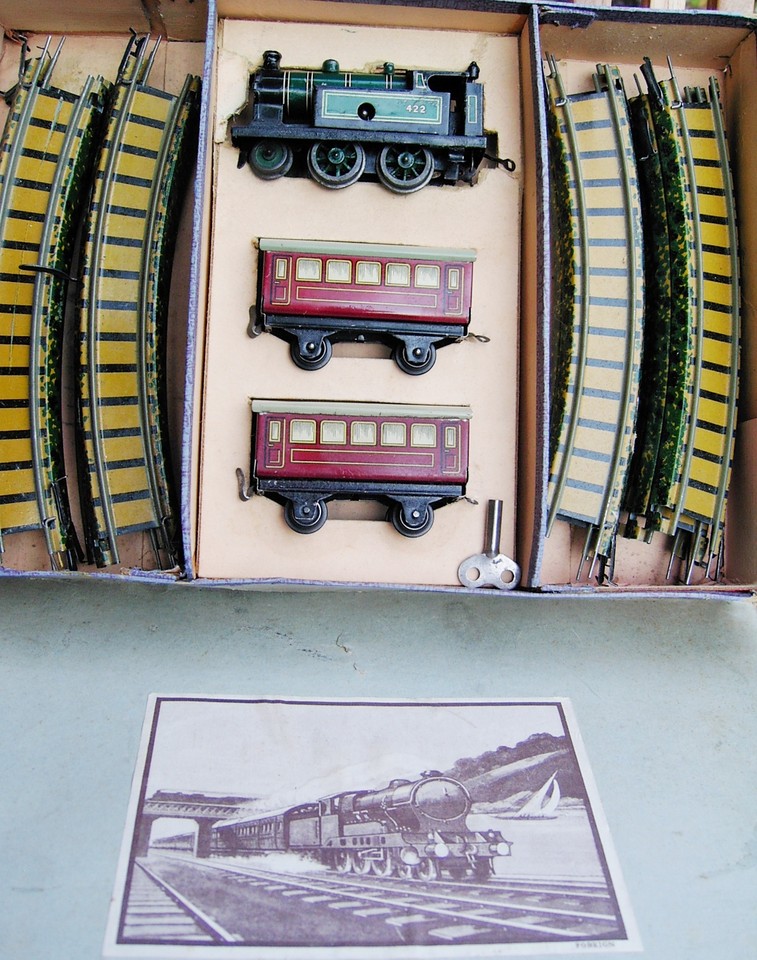
… had products of excellent quality material such as Ausweichbahn …
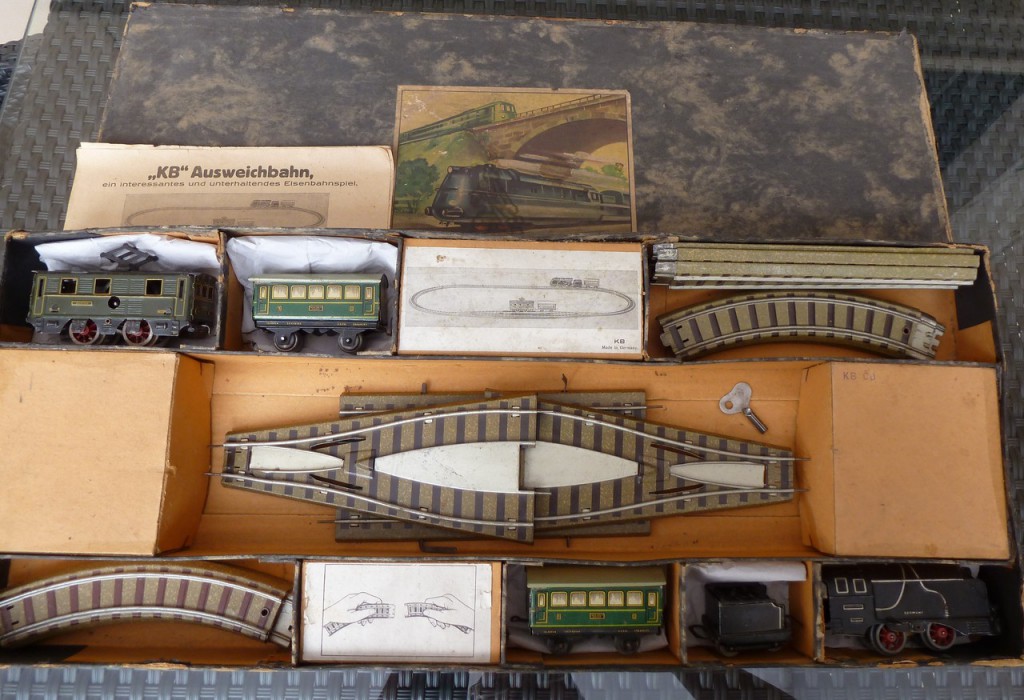
… And, in the 30s, the series “Sonderklasse” characterized by locomotives equipped with sophisticated mechanisms with spring charging with a real mechanical gearbox to march multi-speed …
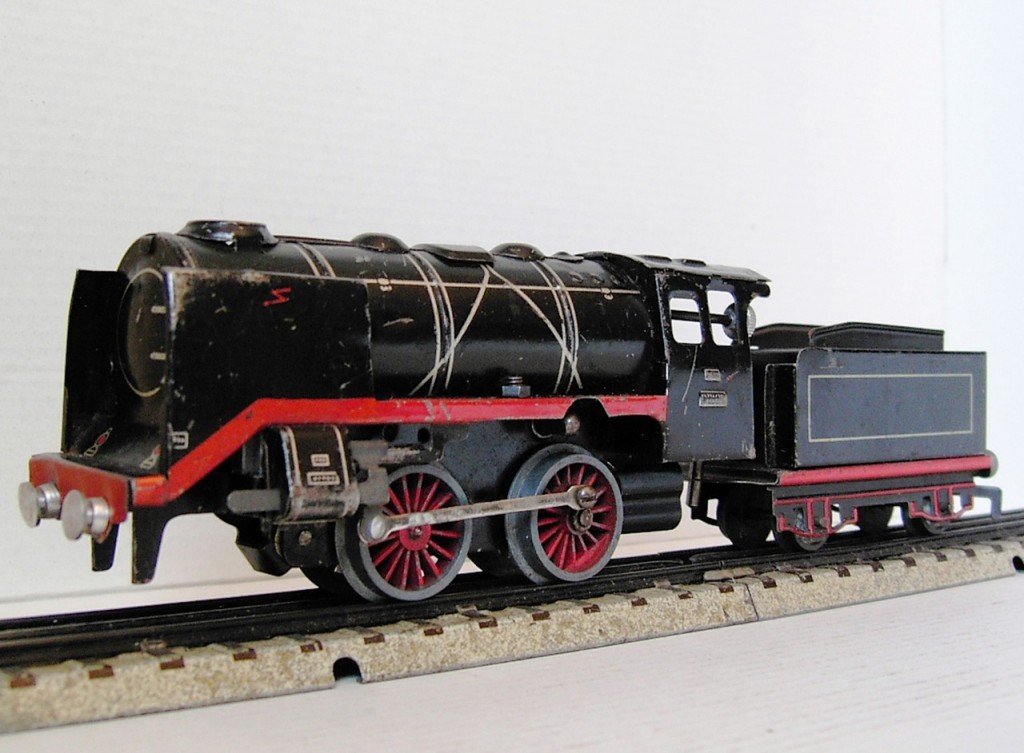
After the war, this brand produces, since 1956, low-cost trains in HO scale, including locomotives, one of the most common is the BR 80.
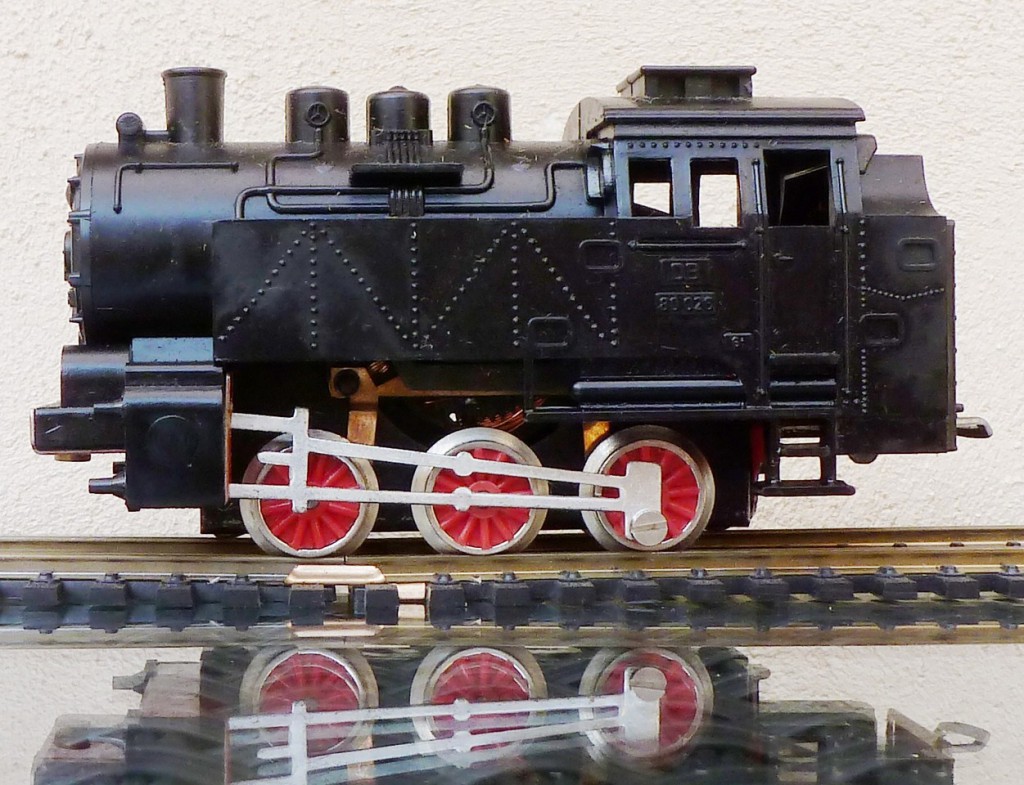
The plastic superstructure of this locomotive is a replica (except for some riveting) of the metal of the 1320 Fleischmann, here in the rare version of 1952 with “Schienenschleifer” (Outlet from the rails by sliding contacts) ….
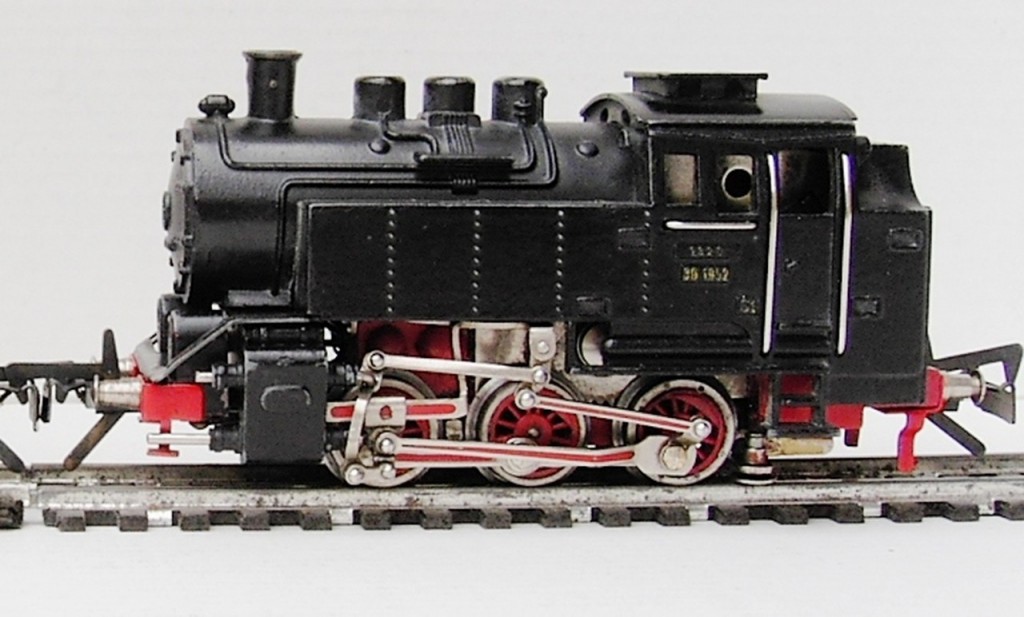
… And which also it plays all major errors than the real machine.
The BR 80 Bub is first proposed in the mechanical version with two axles with the reference 530 ….
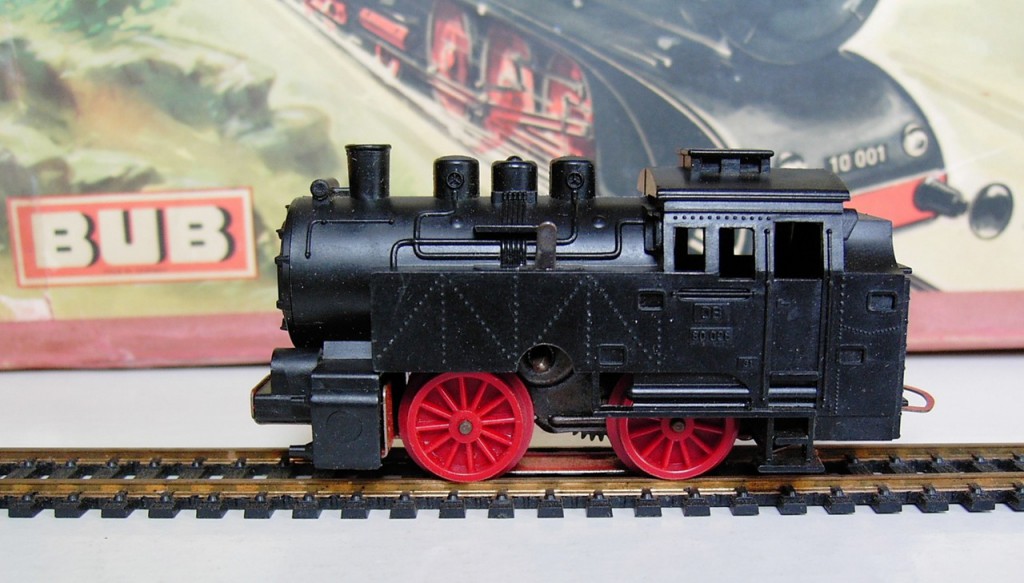
… .here is in a set to be sold to American troops stationed in Germany …
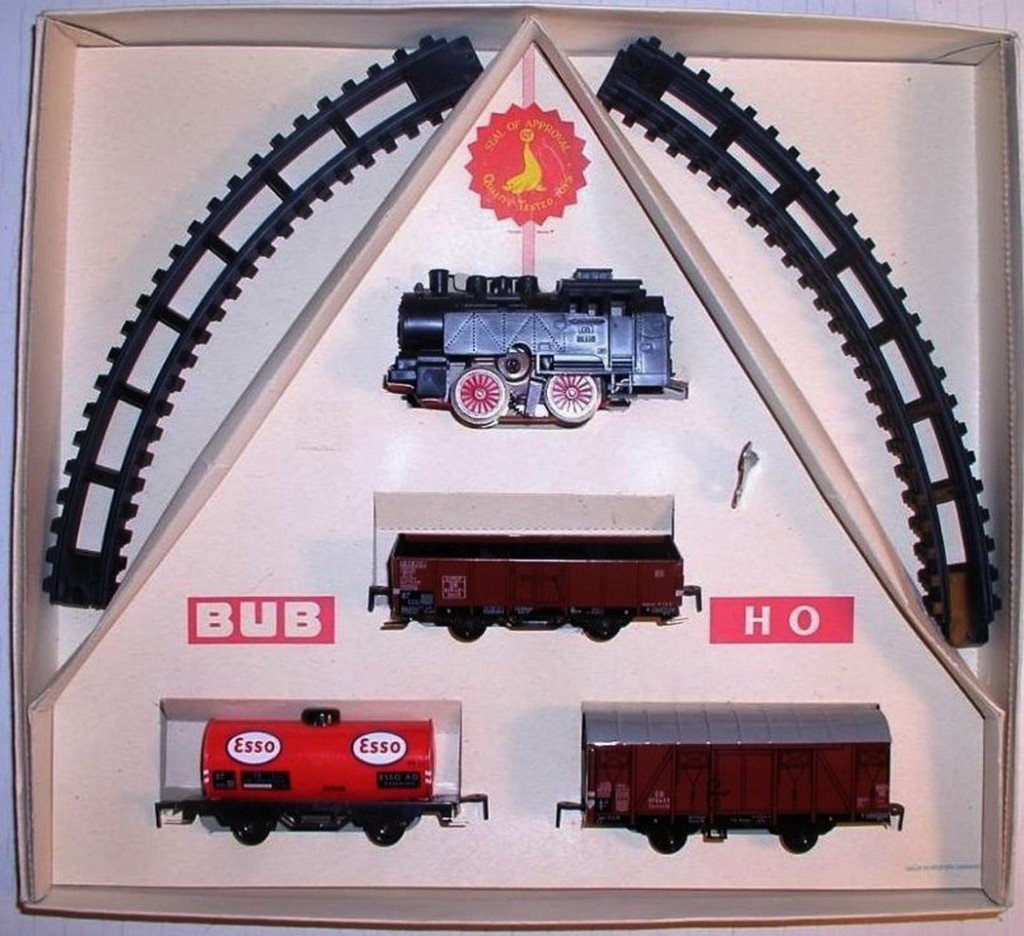
…. with landscape elements in cardboard to be cut …
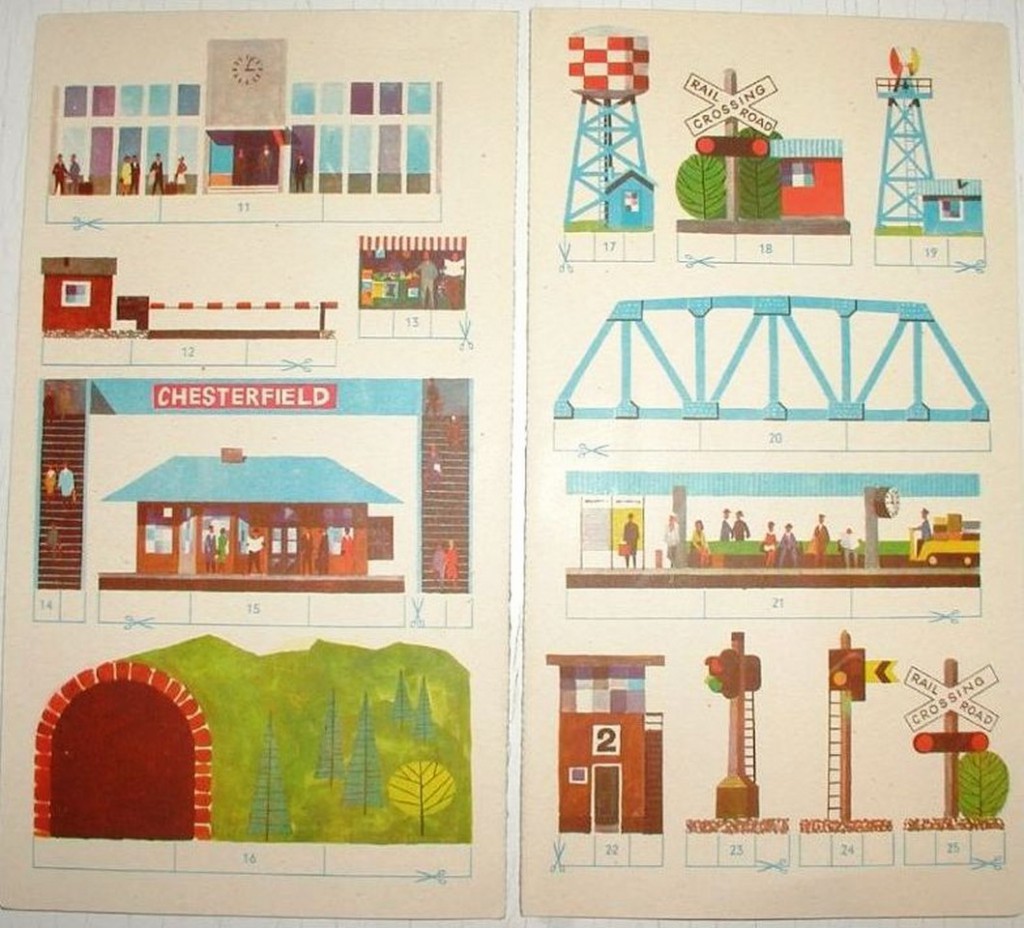
… Or in another packaging destined to selling by catalog of “Quelle”
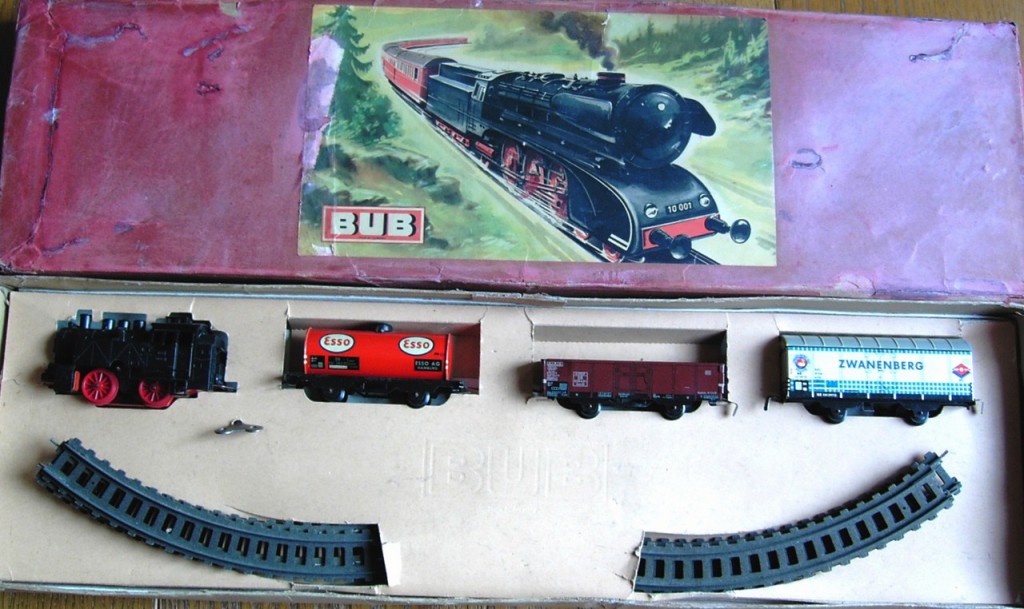
It exists in two versions that differ in the rear hook …
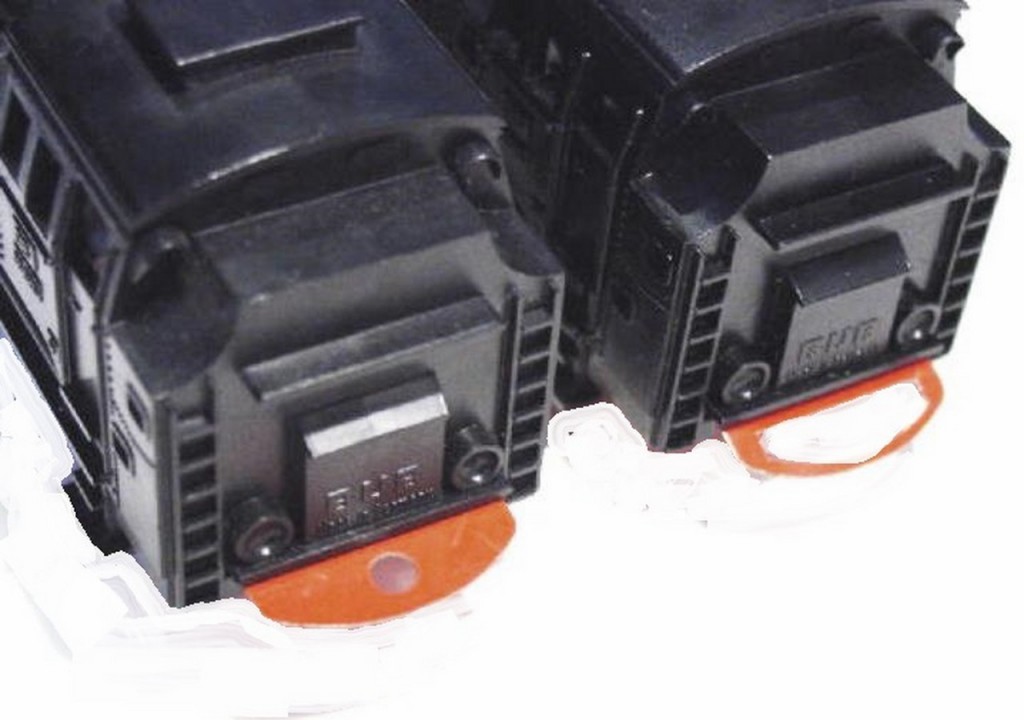
Locomotive and packages are also offered by large organizations such as Neckermann sale,
Bauer, shops Migros, Franz Carl Weber (CH) and others …
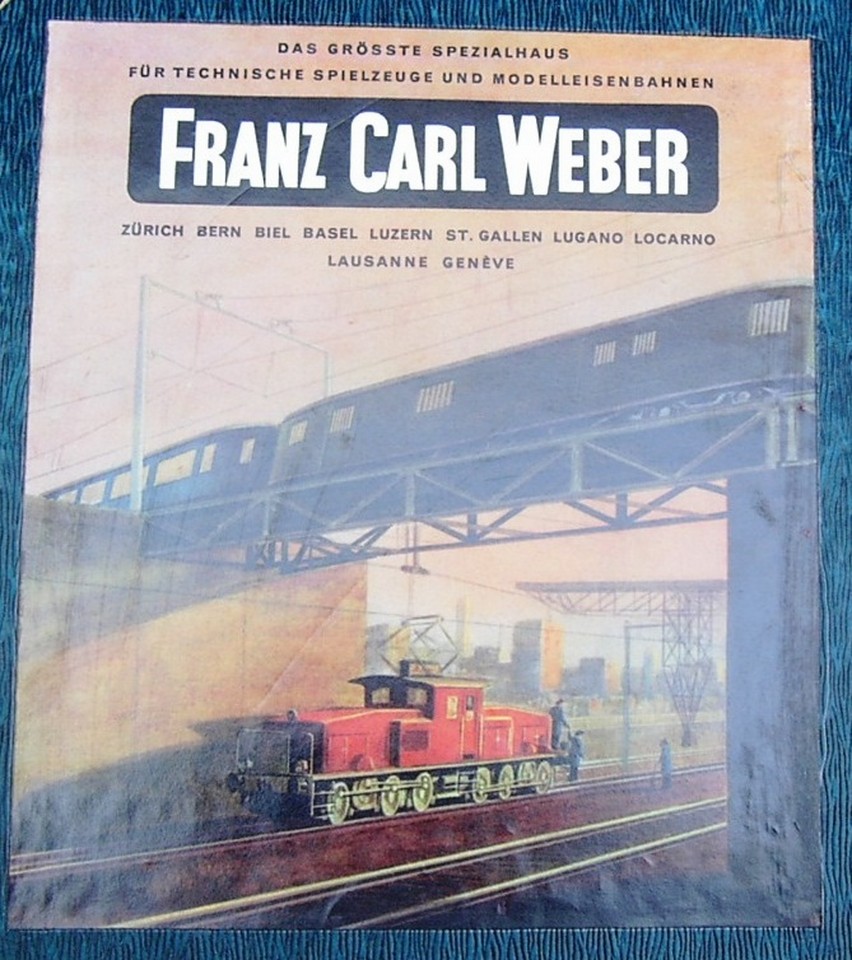
In electric version three axes it is sold with references 1030 -1430 with operation to 4.5 V and 14 V operation with 1434-1436.
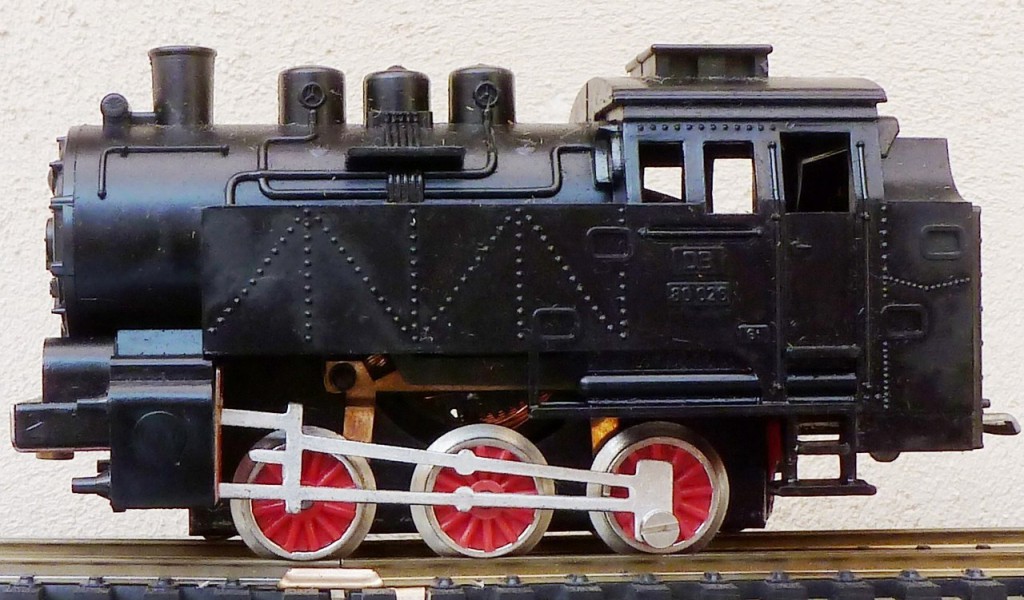
There are several variations, with or without lights or buffers, with transmission only on the rear axle or on the two end axles, gears with brass or cast metal, with or without headlights in clear plastic ….
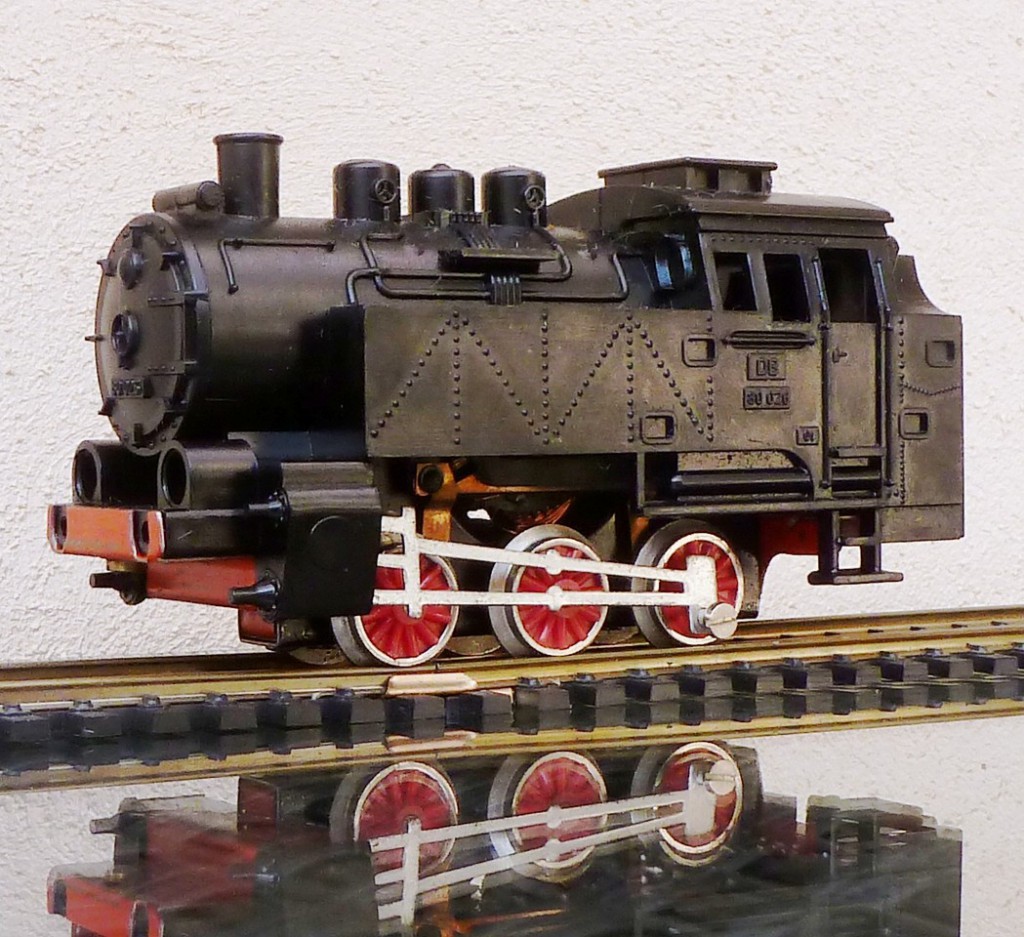
I do not have precise information on agreements between Conti and Bub to face the common enemy Lima, but in any case they are the result of the packs “Conti Little Electric HO”
The first, offered for sale in ’62, contain two wagons and a circle of track Conti, the BR 80 and the box-door stacks Bub …
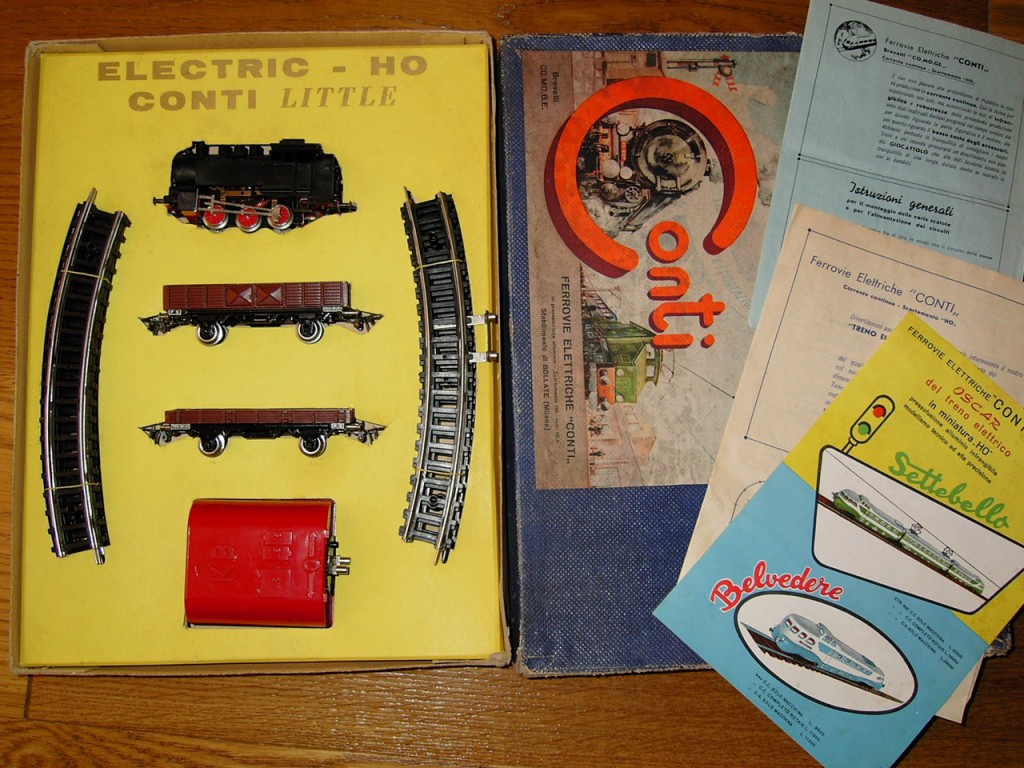
… As a result the wagons are more appealing ….
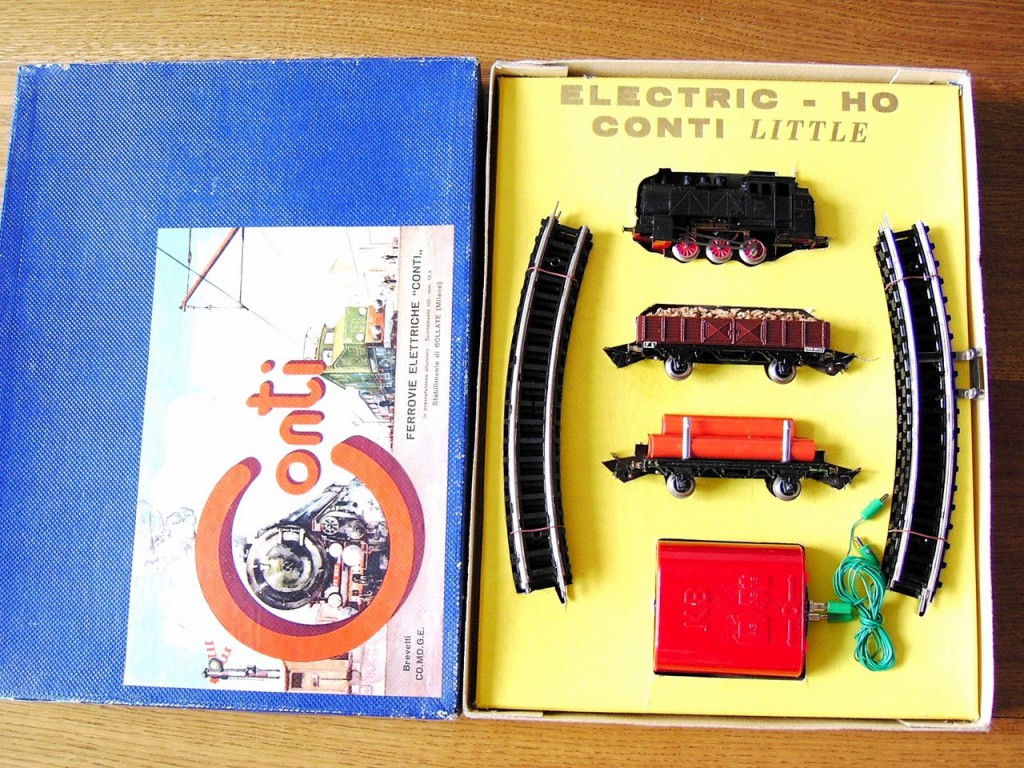
The following year, in ’63, even the tracks are produced with Bub sleepers cardboard, as in this package …
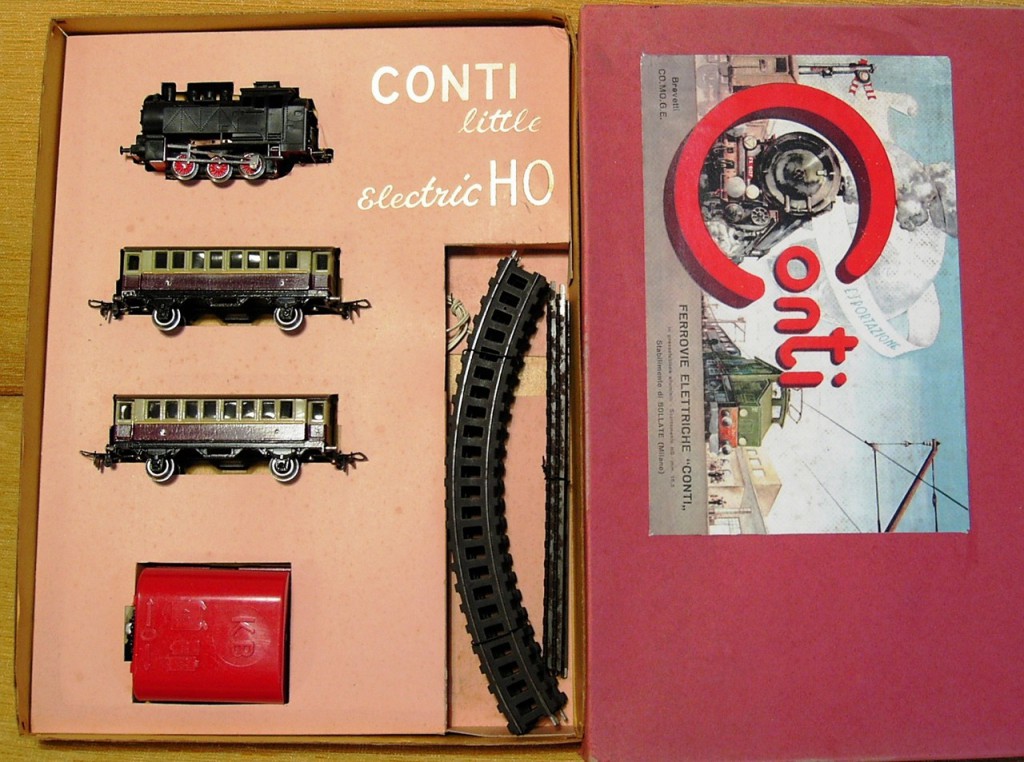
… Where the only elements Conti are the two cars in two-tone two aces …
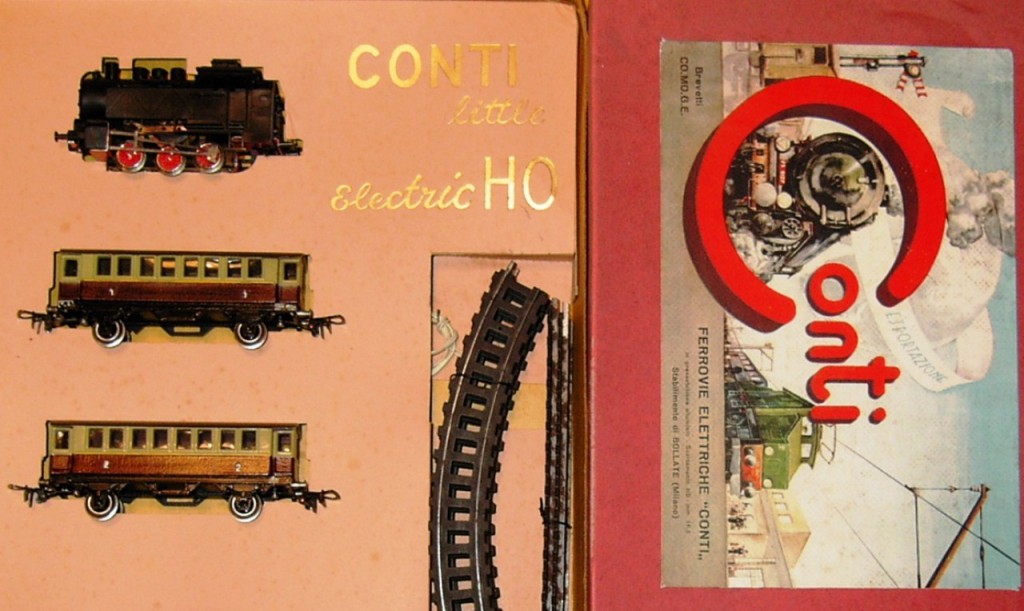
The BR 80 Bub malfunction, are fragile, too light and unsuitable to drive wagons or cars metal Conti.
Perhaps for this and further to reduce costs in the cars metal Conti ’64 are replaced with two cars in plastic Bub … ..
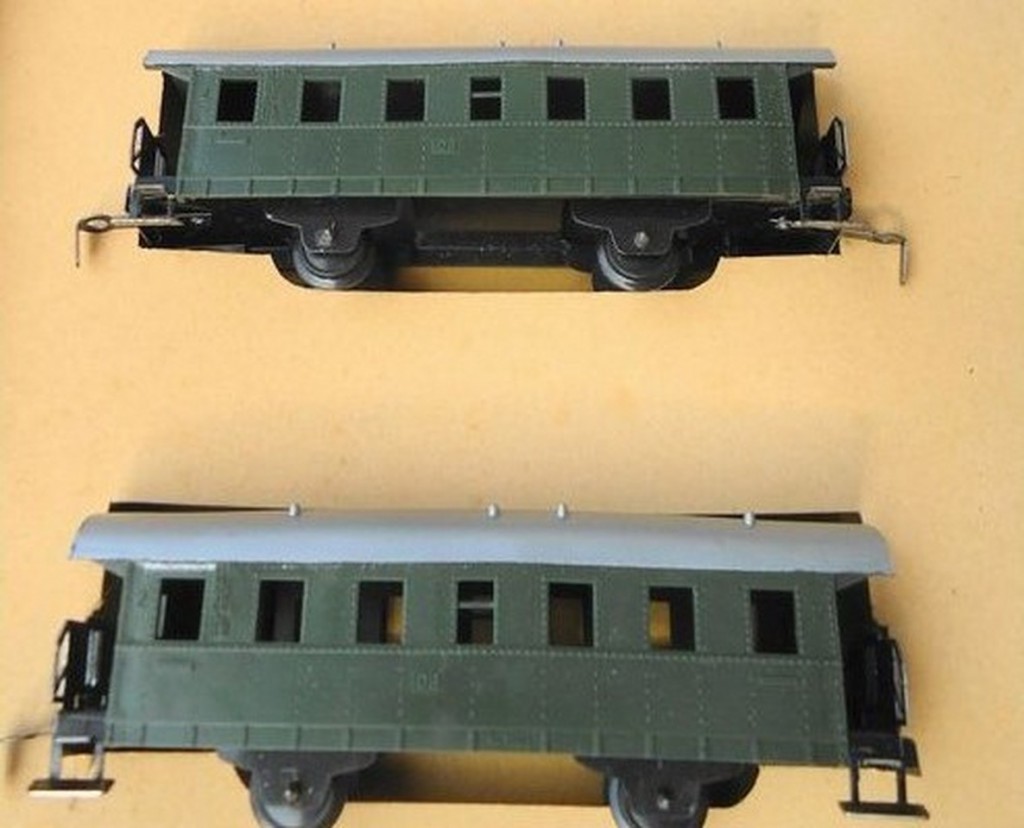
… undoubtful cheaper, but not very sexy and with a tendency to warp, and thus the whole of the packaging material is produced by Bub.
This story has not an happy ending for any of the two companies, as Bub closes its doors in 1966, Orestes Cicchetti still trying, without success, to launch the brand Jolly ….
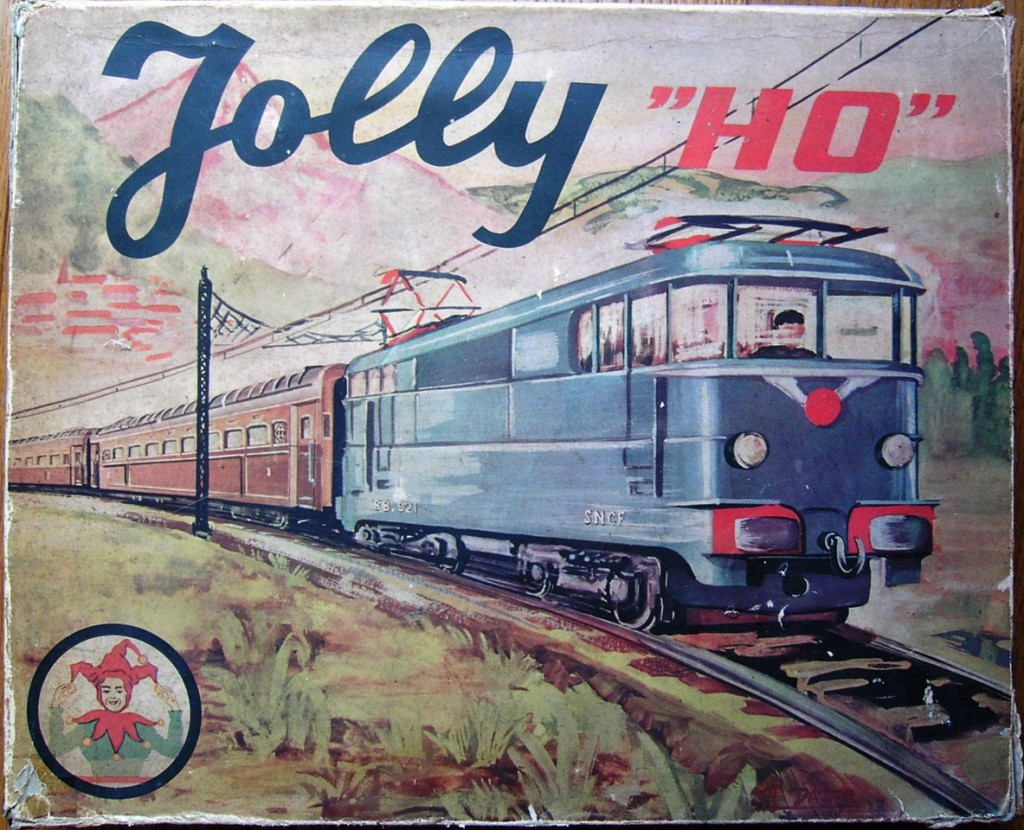
… While on the tracks economic HO Italians and the Germans “BR 80” … LIMA.
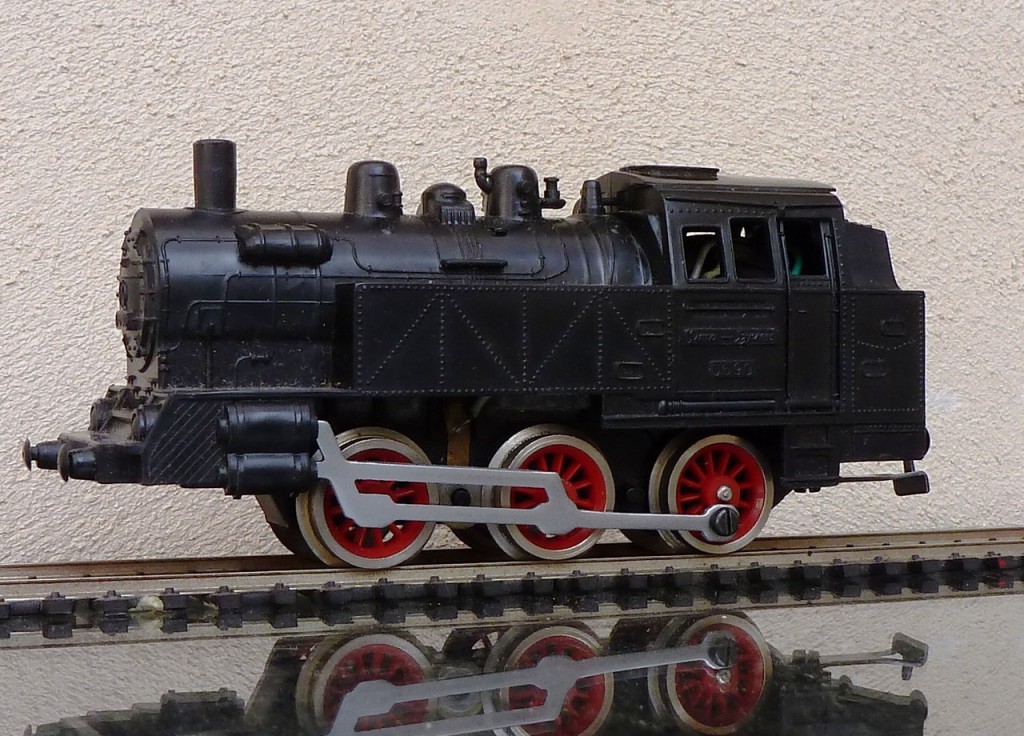
… Much less expensive, more robust and more reliable functioning well, it is condemned to disappear the BR 80 Bub.
and now Richard Hamilton
(@ January 26, 2016)
